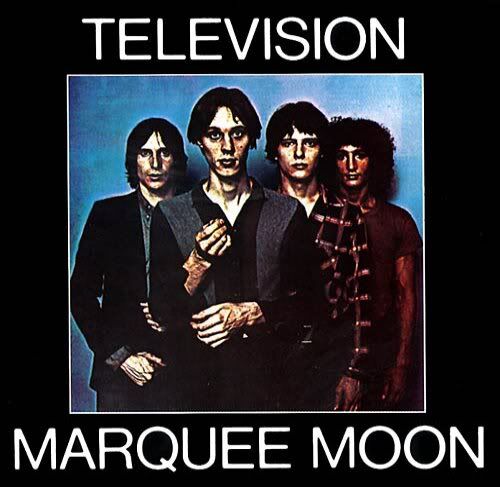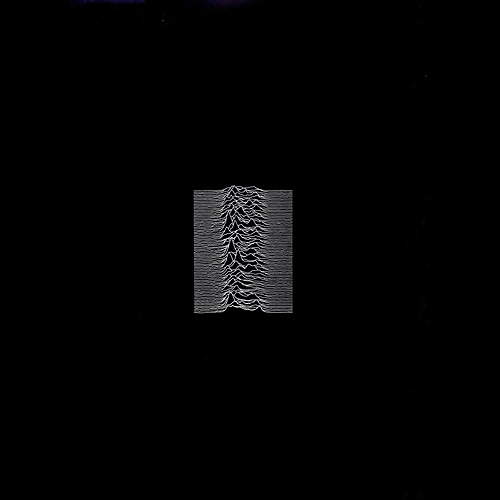
Genre: Punk
1. Television - See No Evil (3:53)
2. Television - Venus (3:51)
3. Television - Friction (4:44)
4. Television - Marquee Moon (10:40)
5. Television - Elevation (5:07)
6. Television - Guiding Light (5:35)
7. Television - Prove It (5:02)
8. Television - Torn Curtain (6:56)
Code: Select all
http://www.filebox.ro/download.php?key=d51bde07f070fefea14e5a59742859d6Television, along with the other 70s legends that inspired the recent reintroduction of guitars, punk and garage-rock to the mainstream, are continually rediscovered by new breeds of NYC hipsters looking to start their own bands. The group's place in history has been resacramented again and again, so by now the backstory's old hat-- you know, the one about them kicking Richard Hell out of the band before they cut their first single, playing gigs and publishing verse with Patti Smith, and talking the owner of the then-unknown CBGB's to host shows of other genres than just "country, bluegrass, and blues" (which also makes them largely to blame for all those people that wear the club's t-shirts).
You can read first-hand accounts and second-hand analyses of all these events, and one thing you'll uncover is the debate over how "punk" Television was. Sure, they joined the movement from the beginning, playing out as early as 1973, and they harnessed the energy you associate with punk, even as they crossed it with art-rock and the poetic urges of frontman Tom Verlaine (nee Miller, renamed after the French poet-- but not in a fey way). But they were also a rock band that roared through long, tense jams: When I first heard "Marquee Moon", it somehow felt like I'd already been exposed to it on a classic rock station wedged between Steve Miller and Skynyrd.
With all that context, the most interesting thing about picking up Television's Marquee Moon-- today, for us folks who weren't old enough to buy the first edition vinyl-- is how ahistorical it sounds. If you listen to their original Brian Eno-produced demos, you hear a scragglier, faster band that's less confident and more... punk? If nothing else, the band at least sounded closer to the sometimes-sloppy Bowery clubrats Eno must have taken them for on those early tapes. Their sound on Marquee Moon, though, is clean, raw and simple. The band never breaks for a squall of energy, yet the whole record crackles with it, and they never rely on atmosphere to make their case. Billy Ficca's drums and Fred Smith's bass are extra lean and crisp, and the band's so tight that even the "Did you feel low?" call-and-response on "Venus de Milo" sounds amusingly rehearsed. The only rough edge is Tom Verlaine's striking warble, a somewhat choked-off tenor influenced either by Patti Smith or by someone kicking him in the throat.
But the things that make the record so classic, that pump your blood like a breath of clean air, are the guitars. This whole record's a mash note to them. The contrast between these two essential leads is stunning: Richard Lloyd chisels notes out hard while Verlaine works with a subtle twang and a trace of space-gazing delirium. They play lines that are stately and chiming, rutting and torrential, the riff, the solo, the rare power chord, and most of all, the power note: the second pang on the riff to "Venus de Milo" lands like a barbell; the opening bars of "See No Evil" show one axe rutting the firmament while the other spirals razorwire around it.
If Jose Feliciano had rearranged "Marquee Moon" the way he ruined "Light My Fire"-- by emphasizing the melody and lyrics and ditching the solos-- he'd have failed Television even worse than he did The Doors; every part of the song is a bridge to the monstrous Verlaine showpiece, and yet his guitar solo has no bombast: it climbs and soars in tangible increments, edging its way up scales and pounding like a contained explosion. The structural integrity makes this an Eiffel Tower in a world of Burning Men: in a decade full of guitarists spraying sweat on the arenas, Verlaine comes off like a man punching through ceilings.
Rhino's remastered release of 1977's Marquee Moon adds a few alternate takes; for example, you can hear "See No Evil" with guitar solos scrawled all over the verses. But you also get the first-ever CD release of "Little Johnny Jewel", a raw single that twangs and skitters around Verlaine's bug-eyed singing. So if you're new to Television but shy about picking up this bedrock masterpiece for the first time, just tell the cutie at the record store that you're buying it for that single, which alone would be worth the price.
With Marquee Moon entrenched in the canon, it's more interesting to revisit their 1978 follow-up, Adventure. This record has always suffered by comparison, mainly because it's so easy to relate it to the first record: the arrangements and the aesthetic are roughly the same, but the music is quieter and more reflective, and that means less horsepower. It's not weak or even very different from their debut, but you might be disappointed when the earth doesn't cave beneath your feet.
There isn't a weak song here, even if you count the abandoned title track, which is restored here as a bonus cut. "Carried Away", the best ballad on either album, floats away on an organ instead of a guitar; "The Fire" sounds as melodramatic as "Torn Curtain" but a lot less Stygian. And while "Foxhole" and "Ain't That Nothin'" wouldn't have broken the flow on Marquee Moon, there's a sense that they're going in a different direction but with the same tools. The reissue is great-- especially for the bonus "Ain't That Nothin'" instrumental runthrough-- but a new Television listener would probably be tempted to check out a whole different experience by picking up the live albums, The Blow-Up or Rhino Handmade's new Live at the Old Waldorf.
Television broke up after Adventure, and like typical mid-level rockers who fade away instead of dying, they went on to other projects, cut a reunion album in 1992, and still play occasional shows to this day. Writing this up now, it's hard not to feel out of place as someone too young to have caught their shows while the world is bursting with tributes and nostalgia from the people who loved them back when. But if my generation only inherited the band, then this release enshrines it again as something timeless, like that Greek sculpture the band once namechecked that shows motion and grace no matter what museum it's displayed in. Rhino and labels in the future will keep carbon-dating and explaining Marquee Moon, but sometime in the future, some Martian kid who can't get dates and hates sports will look past the plaque and sit in his room, blaring this music and wondering how life can possibly sound this great.










